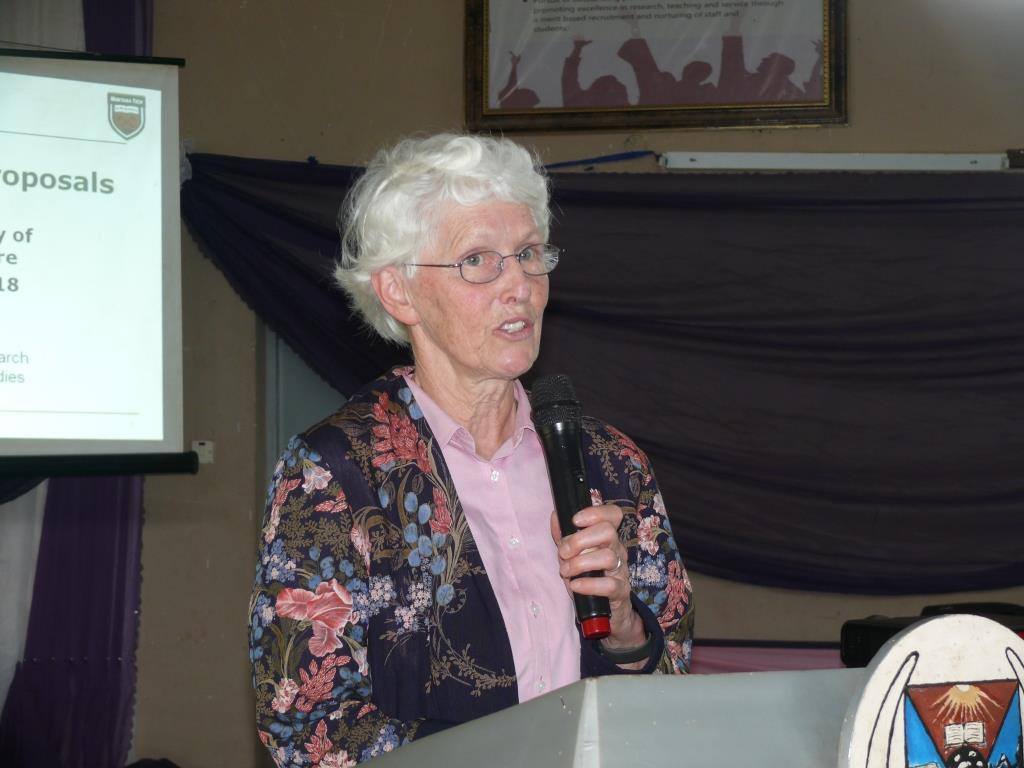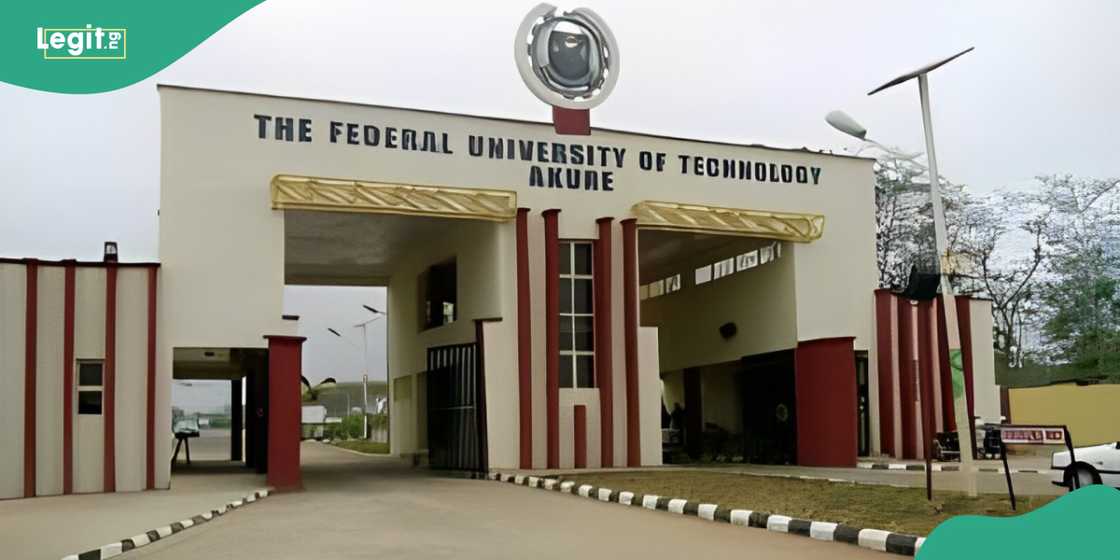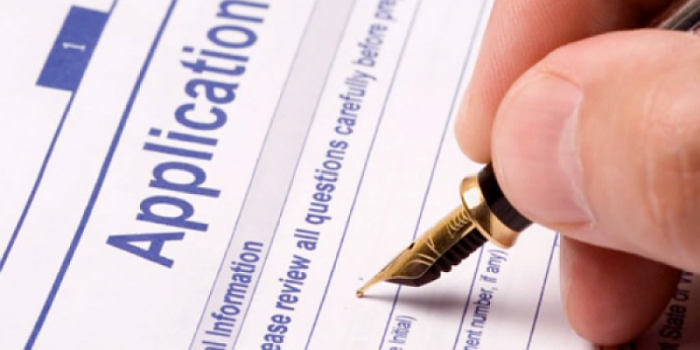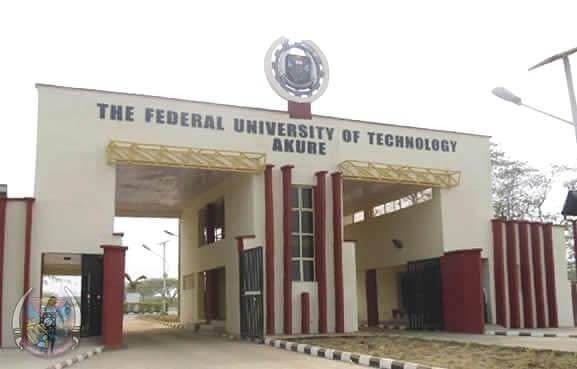
A special lecture on how to write award winning proposal for competitive grant was recently held for staff and post graduate students of the Federal University of Technology, Akure. Vice Chancellor for Research and Dean of the Graduate School at Montana Tech. University, United States of America, Professor Beverly Hartline who delivered the lecture said there are thousands of grants opportunities available for the willing academic who has a viable project and or research idea that will benefit the masses and proffer solution to life challenges.
Hartline said there is always a huge request for grants which makes the competition to be fierce among competitors. She classified available funding opportunities to include scholarship or fellowship which is in form of support for individuals, grants, contract and donation.
She said attracting a grant requires writing a good proposal, stating ones mission and what the research effort is meant to achieve. She equally emphasized on the moral aspect of accepting a grant saying “if you accept the money you must do what you proposed and what the sponsor wants and expects. You must satisfy the sponsor’s accountability requirements. Frequent communication with the sponsor is a very good idea. Be very cautious about preparing and submitting a proposal if you are not interested in the project, even if you know the funding chances are favorable.” She also said “the proposal should be written to convince reviewers that the project is important, it can be done, and that you can do it.”
She stressed the need to read guidelines for proposals before writing and encouraged early submission to beat deadline. According to her cultivating strong relationship with sponsor and satisfying sponsor’s requirements are also critical.
Similar Posts:
- FUTA Newly Approved Undergraduate Programmes Admission
- Federal University of Technology, Akure (FUTA) School Fees Schedule
- B.Sc. Computer Science at FUTA’s Open and Distance Learning Centre
- Universal School of Aviation (USA) Matriculation Ceremony Schedule
- Price of WAEC GCE Scratch Cards & Selling Points
Hartline emphasized the need to seek funder-project match through shared mission and goals, shared constituency, common core values and “culture”, similar image, motto, vision, shared “market”, interest in product or result. She said “the ‘fit’ between your idea/project and the sponsor’s interests is key. Learn as much as possible about the sponsor: what has it funded recently, know the eligibility requirements, understand the selection process, know the selection criteria, know and address any special requirements, make sure the proposal clearly demonstrates how your project satisfies sponsor’s criteria and requirements. Whoever has the money, writes the rules, you need to understand the sponsor.”
Hartline emphasized the need to cultivate a relationship with sponsors by following their rules while applying, not bothering them after any deadline, sending “thank-you” notes or emails as means of courtesy. She said “if funded, keep them informed, invite them to visit and if not funded, request feedback. Make a good first impression by planning well. Get to the point. Dress professionally, if meeting.”
Hartline urged a writer of a proposal to seek the significance of the proposed idea by seeking how the project relates and builds on existing knowledge and who else is working in the area.
She said “it is important to seek what is the research or other problem, why is the research needed, what future breakthroughs might the project lead to, what are potential applications and broader impacts, how might the project advance knowledge within and across disciplines.”
The don also emphasized the importance of collaboration in writing proposal. She said “find collaborators who complement you, and provide missing expertise essential to project success.”
Summarizing and highlighting the qualities an individual writing the proposal must possess Hartline said “to write a proposal that can attract and win a grant do self-assessment indicating when do you want to start the project; what grant-submission deadline must you meet; is the plan/project clear; does it need development; what are the selection criteria; does your project meet them; what information do you have in hand; what goes in each proposal part; what do you need; who do you need it from; how will you get it; who are you collaborating with; are they on board; do partnerships need nurturing; support letters; what review do you want/need before submitting; what competing obligations do you have; how will you divide the proposal preparation among team?” among others.
In an opening remark, the Chief Host and Vice Chancellor, Professor Joseph Fuwape said “the challenge of funding tertiary education has assumed a worrisome dimension over the years due to global economic downturn. Universities more than ever before, now have to re-strategize and develop frameworks for sustainability. One way of attracting external funding for the university is to have need-driven research. However, to increase grant success rate there is the need to understand the complicated funding landscape and discover hidden opportunities in order to make informed decisions. This lecture is therefore pertinent at this period of our national development as it will suggest ways of developing award winning proposals for competitive grant.”
Introducing Hartline, the Vice Chancellor, Professor Joseph Fuwape described her as a renowned Research Management expert whose Research career started at age 6, when she wondered about how plants grow. This continued through middle and high school with studies on peripheral vision, ecosystem balance and an invasive shrimp. He said Hartline’s responsibilities at Montana Tech University which span over 30 years include supporting and increasing research and sponsored programmes, managing and growing graduate school, encouraging and supporting intellectual property/economic development and facilitating international cooperation. This vast experience she had come to extend to FUTA.
The special lecture was jointly hosted by the Centre for Research and Development (CERAD), under the watch of the Director, Professor Ganiyu Oboh and the Centre for Gender Issues in Science and Technology (CEGIST) under the leadership of Professor Tinu Adebolu its Director.




